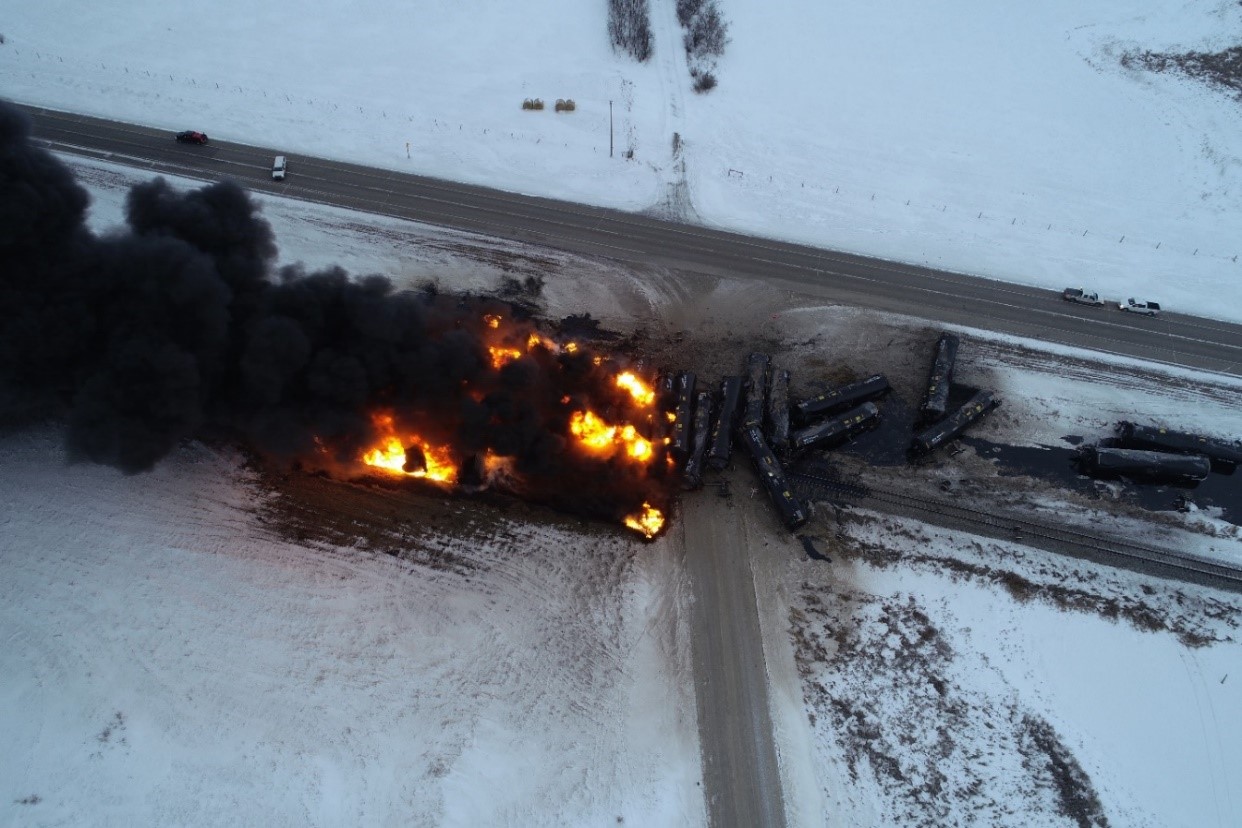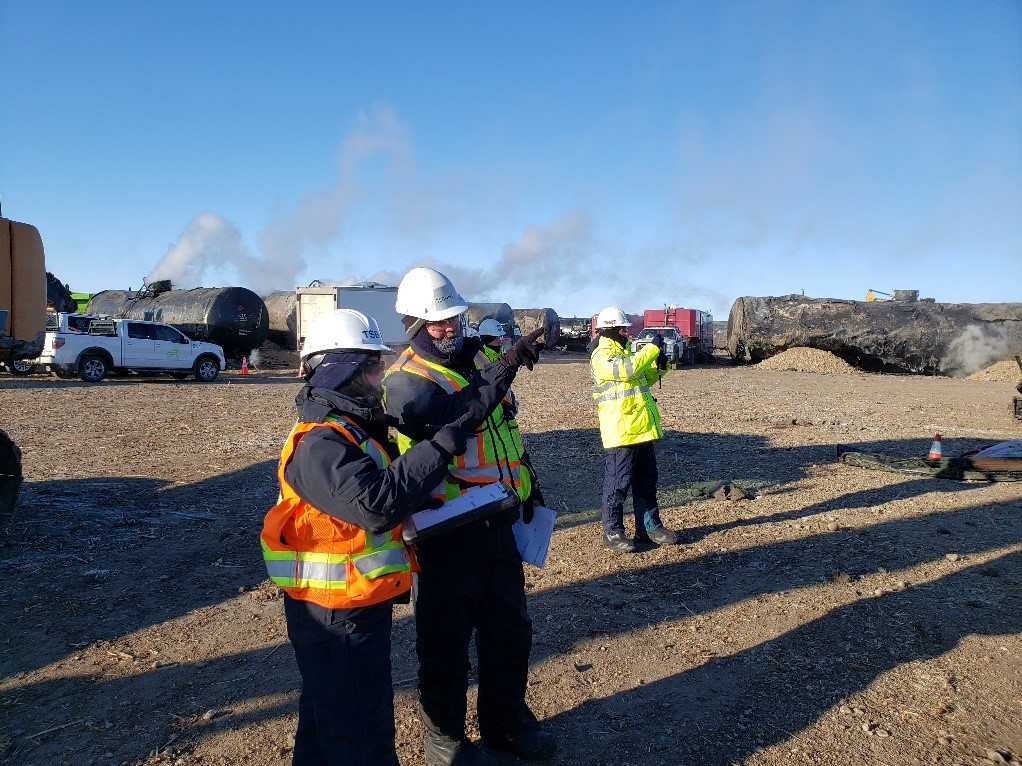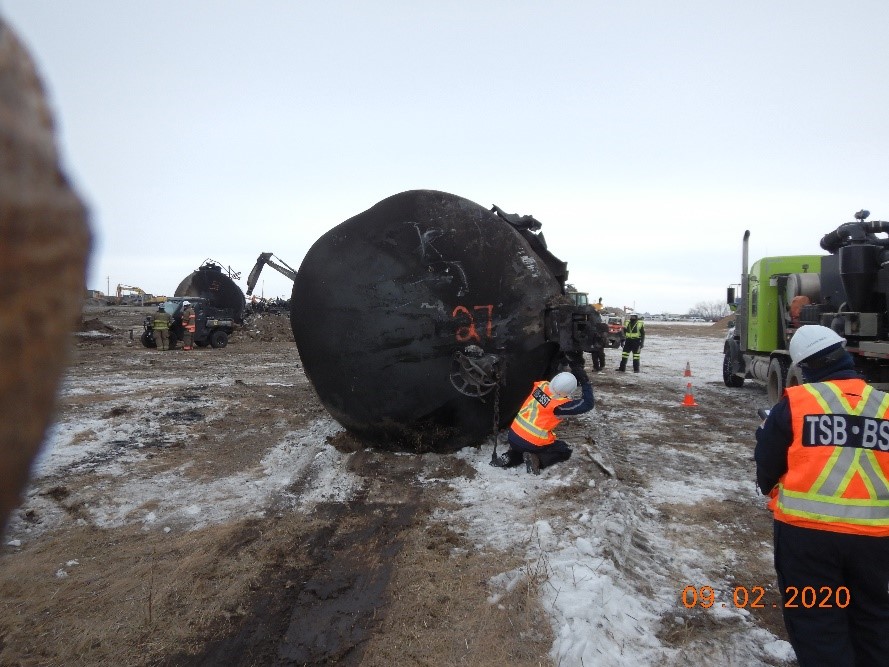Main-track train derailment
Canadian Pacific Railway Company
Freight train 516-380
Mile 43.66, Sutherland Subdivision
Guernsey, Saskatchewan
The occurrence
On 06 February 2020, Canadian Pacific Railway Company freight train 516-380, a unit train carrying petroleum crude oil (UN1267, Class 3, Packing Group I), was proceeding eastward on the Sutherland Subdivision at about 44 mph when a train-initiated emergency brake application occurred near Guernsey, Saskatchewan. A subsequent inspection determined that 32 DOT-117J100-W tank cars had derailed near the Bloomfield Road public crossing at Mile 43.66, destroying about 300 feet of track. Thirty of the derailed cars released about 1.75 million L of crude oil. A fire ensued. Approximately 85 residents of Guernsey were evacuated, and Highway 16 was closed. There were no injuries.
Safety communications
Rail Safety Advisory 617-02-20: Modifying key train speed based on various train risk profiles
Rail Safety Advisory 617-03/20: Enhanced track standards for key routes
Media materials
News releases
Rail failure led to 2020 train derailment and crude oil fire near Guernsey, Saskatchewan
Read the news release
Deployment notice
TSB deploys a team of investigators to a train derailment near Guernsey, Saskatchewan
Winnipeg, Manitoba, 6 February 2020 – The Transportation Safety Board of Canada (TSB) is deploying a team of investigators to the site of a derailment involving a Canadian Pacific Railway train near Guernsey, Saskatchewan. The TSB will gather information and assess the occurrence.
Download high-resolution photos from the TSB Flickr page.
Class of investigation
This is a class 3 investigation. These investigations analyze a small number of safety issues, and may result in recommendations. Class 3 investigations are generally completed within 450 days. For more information, see the Policy on Occurrence Classification.
TSB investigation process
There are 3 phases to a TSB investigation
- Field phase: a team of investigators examines the occurrence site and wreckage, interviews witnesses and collects pertinent information.
- Examination and analysis phase: the TSB reviews pertinent records, tests components of the wreckage in the lab, determines the sequence of events and identifies safety deficiencies. When safety deficiencies are suspected or confirmed, the TSB advises the appropriate authority without waiting until publication of the final report.
- Report phase: a confidential draft report is approved by the Board and sent to persons and corporations who are directly concerned by the report. They then have the opportunity to dispute or correct information they believe to be incorrect. The Board considers all representations before approving the final report, which is subsequently released to the public.
For more information, see our Investigation process page.
The TSB is an independent agency that investigates air, marine, pipeline, and rail transportation occurrences. Its sole aim is the advancement of transportation safety. It is not the function of the Board to assign fault or determine civil or criminal liability.


